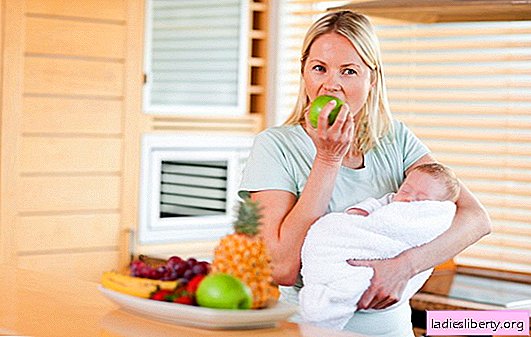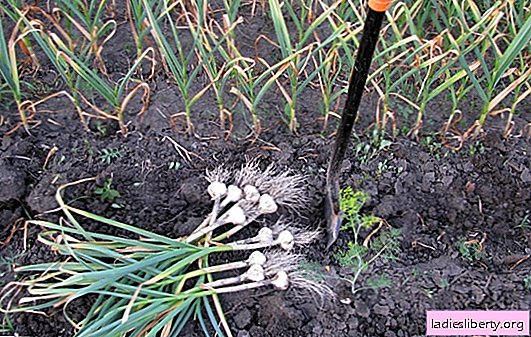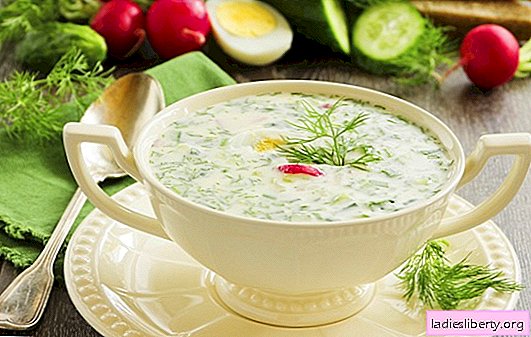
Apples are one of the most popular and healthy fruits.
Everyone knows about their beneficial properties.
However, women who have recently become mothers are worried about the question: are apples so harmless while breastfeeding?
Is it possible to nursing apples: benefits for mom and baby
Apples are a real storehouse of vitamins. They contain E, C, P and B vitamins. This fruit is not deprived of this fruit and useful trace elements. For example, potassium, which is rich in fruits, improves the functioning of the cardiovascular system and prevents the appearance of many diseases associated with it.
Calcium in apples strengthens the mother’s bones, teeth and nails, and is also involved in strengthening the baby’s bone system. Phosphorus in fruits helps in the easy digestibility of calcium.
Apples are the best way to increase hemoglobin, due to the high easily digestible iron in the composition. They control cholesterol and purify the blood, removing toxins from it. The purer the mother’s blood, the better the milk that the baby eats, and, therefore, he receives more useful substances with him.
Fiber in the pulp of the fruit improves the digestive system, prevents constipation, removes toxins from the intestines.
Vitamin A helps fight viral infections, properly forms the immune system in a child, and also “rejuvenates” the mother’s body.
Group B vitamins soothe the nervous system of both mothers and babies.
It is also believed that apples are the most hypoallergenic product.
Is it possible to nursing apples: can they be harmful?
If apples are so rich in useful substances and are only beneficial in themselves, the question arises: can they do much harm?
Is it possible for nursing apples and won't it harm the baby? Specialists in breastfeeding argue that eating fruit is not just possible, but very necessary during lactation. It is believed that if a mother ate apples during pregnancy, then no reactions from the side of the child will follow during feeding.
Many mothers worry that the baby may be allergic to apples. In this case, do not deny yourself the pleasure of eating an apple. Just then you need to give preference to the green variety. They do not exactly cause redness and rashes on the skin of the baby.
There is confidence that apples can cause flatulence in a child. Such a reaction of fragile children's intestines is also possible. But, it is believed that if mom is okay after eating apples, then the child will not have anything like that.
During breastfeeding, only natural apples should be preferred. The ideal option would be grown in your garden. However, such fruits may not be useful if they were stored all winter. Already by spring in such apples there will be no trace of anything useful, despite the storage conditions. Instead, it is better to drink natural apple juices from the children's line that have passed certification.
Buy apples brought from abroad also should not be bought in stores or markets. Most likely, for their growth and beautiful appearance, all kinds of chemicals were added that with milk will get into the baby's body and harm him.
Is it possible to nursing apples: red, green or ... baked?
During breastfeeding, a woman is especially attentive to everything that she eats. When deciding whether to introduce apples, she logically thinks: is it possible for nursing apples to be green or red? Or maybe baked are safer?
Reds
Like all other red foods, these varieties of apples cause doubts among mothers. Of course, the chances that it is the red apples that cause allergies in the baby are very high, since they have coloring pigment. Do not be the first to introduce apples with red peel also because they have a high sugar content. It is these additional carbohydrates that can trigger colic and bloating and the baby.
Red apples are also not recommended because of the high content of acids in them. They destroy the tooth enamel of the mother, who already has a calcium deficiency in the body, because almost everything goes to the baby with milk.
If you really wanted to eat a red apple, then you should first peel it.
Green
Experts believe that these apples never cause allergies in infants. They can begin to eat already from the first days after birth. Their vitamin composition allows the mother's body to recover faster after such a colossal load.
After childbirth, many suffer from constipation. Green apples will delicately solve this problem. Thanks to indigestible fiber, the intestines are easily released from feces.
If suddenly after a green apple was eaten, my mother has flatulence or discomfort in the stomach, then for a while it is worth abandoning this product.
Baked
This is a delicacy that is served even in maternity hospitals. Fast to cook, baked apples retain all the beneficial properties. In addition to being very tasty and tender, they improve the functioning of the gastrointestinal tract and are easily absorbed by the body.
In baked apples, a large amount of pectin and fiber is concentrated. These components establish all metabolic processes in the body and have an anti-inflammatory effect, which is also very important in the postpartum period.
Thus prepared fruits regulate the circulatory system and blood pressure.
How to cook:
The core with seeds is carefully cut so as not to spoil the bottom.
A little sugar and chopped walnuts are poured into the hole.
The apple is laid out on a baking sheet and sent to the oven.
After 15 minutes, you can remove, cool and enjoy the aroma and taste of the fruit.
Is it possible to nursing apples? Not only possible, but necessary! They help the woman recover after childbirth, saturate the body of the baby with vitamins and minerals and are just a delicious dessert. Before eating, apples should be washed well to avoid unpleasant consequences. But despite all the benefits, you should not get carried away with fruit. Just a couple of fruits a day 3-4 times a week.











